Gianmarco Parretti
Emerson-Lei and Manna-Pnueli Games for LTLf+ and PPLTL+ Synthesis
Aug 20, 2025Abstract:Recently, the Manna-Pnueli Hierarchy has been used to define the temporal logics LTLfp and PPLTLp, which allow to use finite-trace LTLf/PPLTL techniques in infinite-trace settings while achieving the expressiveness of full LTL. In this paper, we present the first actual solvers for reactive synthesis in these logics. These are based on games on graphs that leverage DFA-based techniques from LTLf/PPLTL to construct the game arena. We start with a symbolic solver based on Emerson-Lei games, which reduces lower-class properties (guarantee, safety) to higher ones (recurrence, persistence) before solving the game. We then introduce Manna-Pnueli games, which natively embed Manna-Pnueli objectives into the arena. These games are solved by composing solutions to a DAG of simpler Emerson-Lei games, resulting in a provably more efficient approach. We implemented the solvers and practically evaluated their performance on a range of representative formulas. The results show that Manna-Pnueli games often offer significant advantages, though not universally, indicating that combining both approaches could further enhance practical performance.
LTLf Adaptive Synthesis for Multi-Tier Goals in Nondeterministic Domains
Apr 29, 2025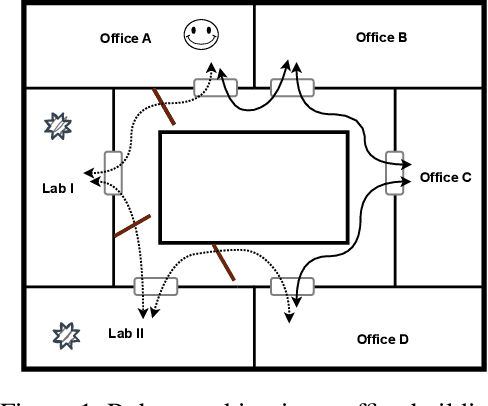
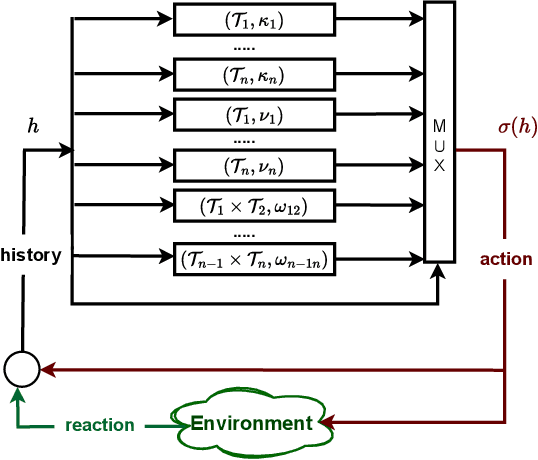
Abstract:We study a variant of LTLf synthesis that synthesizes adaptive strategies for achieving a multi-tier goal, consisting of multiple increasingly challenging LTLf objectives in nondeterministic planning domains. Adaptive strategies are strategies that at any point of their execution (i) enforce the satisfaction of as many objectives as possible in the multi-tier goal, and (ii) exploit possible cooperation from the environment to satisfy as many as possible of the remaining ones. This happens dynamically: if the environment cooperates (ii) and an objective becomes enforceable (i), then our strategies will enforce it. We provide a game-theoretic technique to compute adaptive strategies that is sound and complete. Notably, our technique is polynomial, in fact quadratic, in the number of objectives. In other words, it handles multi-tier goals with only a minor overhead compared to standard LTLf synthesis.
Computational Grounding of Responsibility Attribution and Anticipation in LTLf
Oct 18, 2024Abstract:Responsibility is one of the key notions in machine ethics and in the area of autonomous systems. It is a multi-faceted notion involving counterfactual reasoning about actions and strategies. In this paper, we study different variants of responsibility in a strategic setting based on LTLf. We show a connection with notions in reactive synthesis, including synthesis of winning, dominant, and best-effort strategies. This connection provides the building blocks for a computational grounding of responsibility including complexity characterizations and sound, complete, and optimal algorithms for attributing and anticipating responsibility.
Symbolic LTLf Best-Effort Synthesis
Aug 29, 2023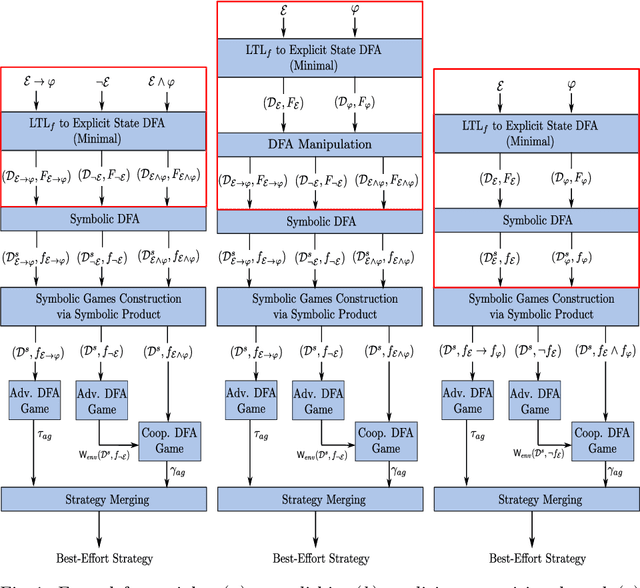
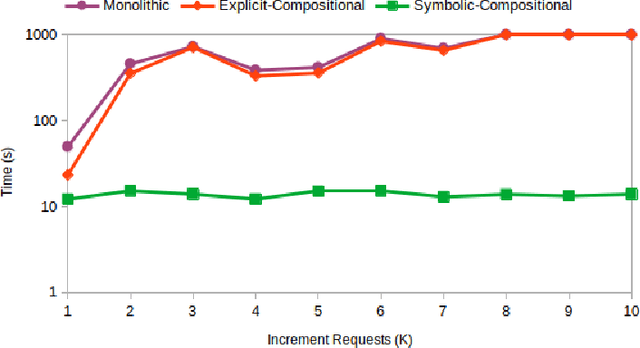
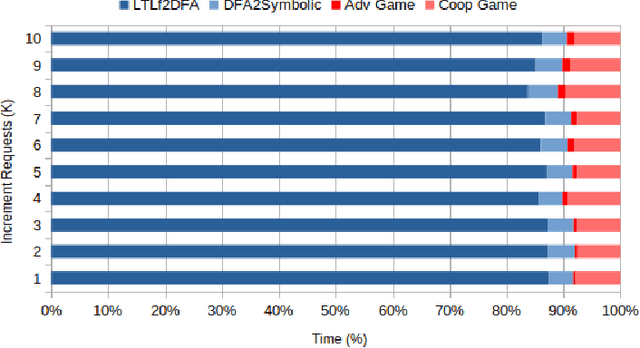
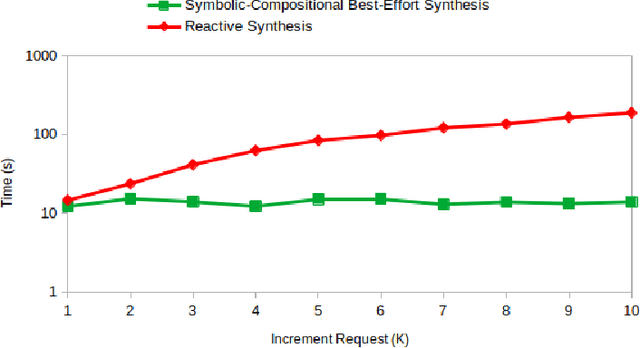
Abstract:We consider an agent acting to fulfil tasks in a nondeterministic environment. When a strategy that fulfills the task regardless of how the environment acts does not exist, the agent should at least avoid adopting strategies that prevent from fulfilling its task. Best-effort synthesis captures this intuition. In this paper, we devise and compare various symbolic approaches for best-effort synthesis in Linear Temporal Logic on finite traces (LTLf). These approaches are based on the same basic components, however they change in how these components are combined, and this has a significant impact on the performance of the approaches as confirmed by our empirical evaluations.
LTLf Best-Effort Synthesis in Nondeterministic Planning Domains
Aug 29, 2023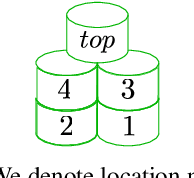

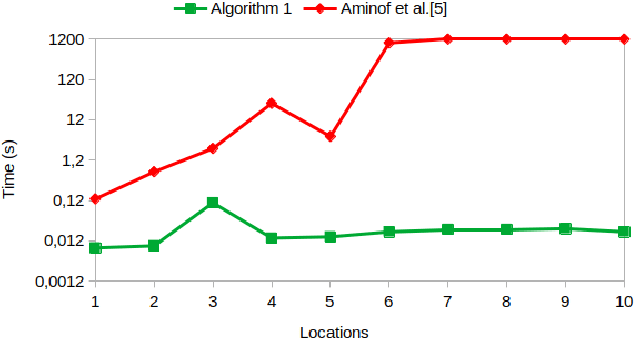
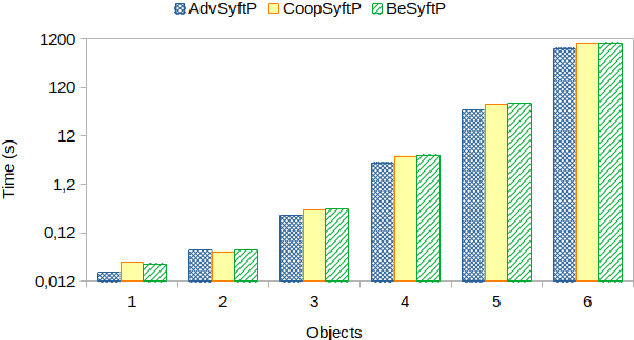
Abstract:We study best-effort strategies (aka plans) in fully observable nondeterministic domains (FOND) for goals expressed in Linear Temporal Logic on Finite Traces (LTLf). The notion of best-effort strategy has been introduced to also deal with the scenario when no agent strategy exists that fulfills the goal against every possible nondeterministic environment reaction. Such strategies fulfill the goal if possible, and do their best to do so otherwise. We present a game-theoretic technique for synthesizing best-effort strategies that exploit the specificity of nondeterministic planning domains. We formally show its correctness and demonstrate its effectiveness experimentally, exhibiting a much greater scalability with respect to a direct best-effort synthesis approach based on re-expressing the planning domain as generic environment specifications.
 Add to Chrome
Add to Chrome Add to Firefox
Add to Firefox Add to Edge
Add to Edge